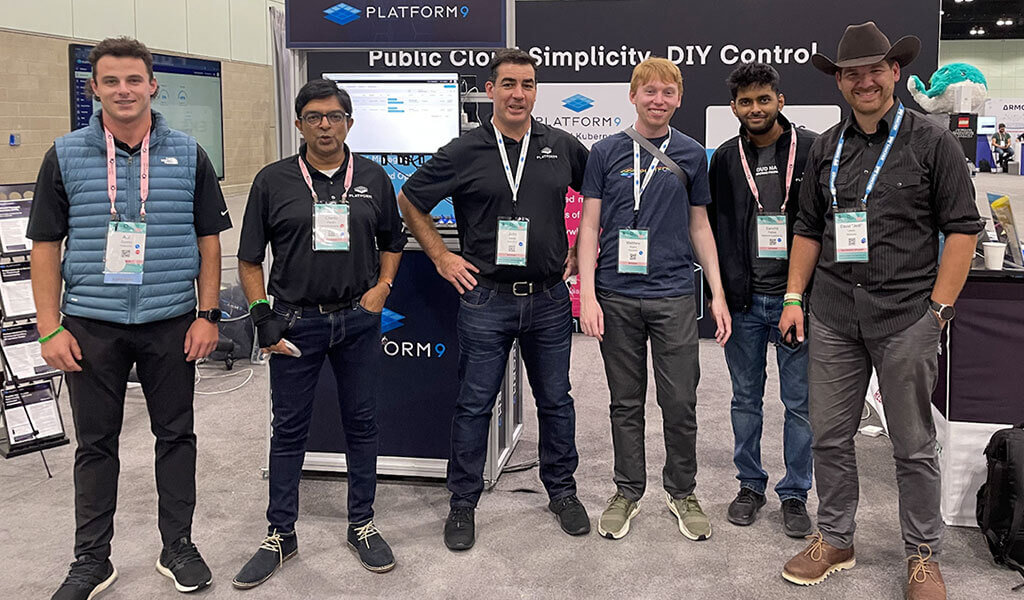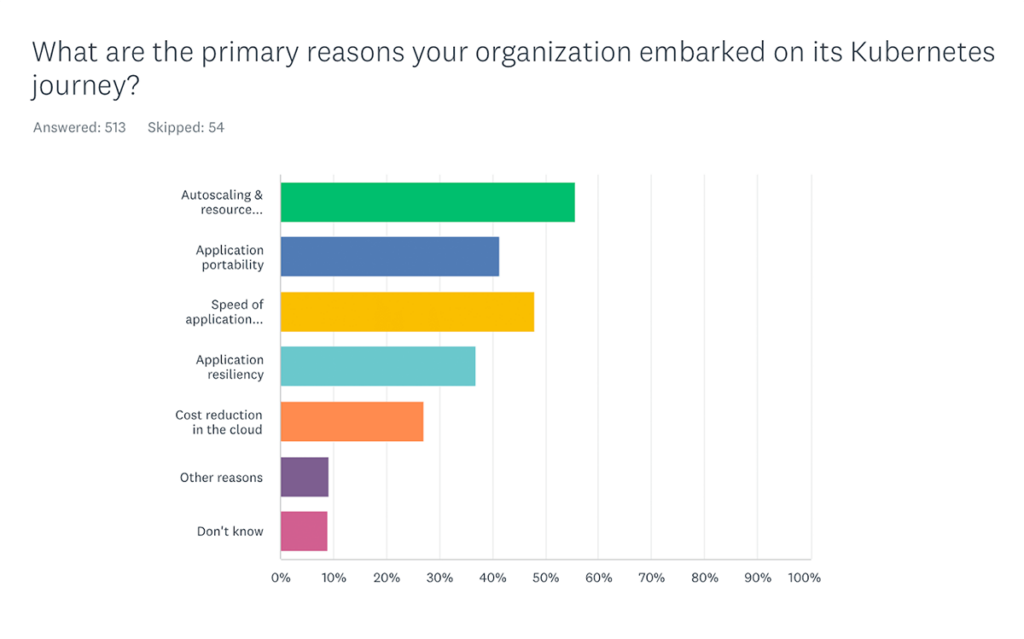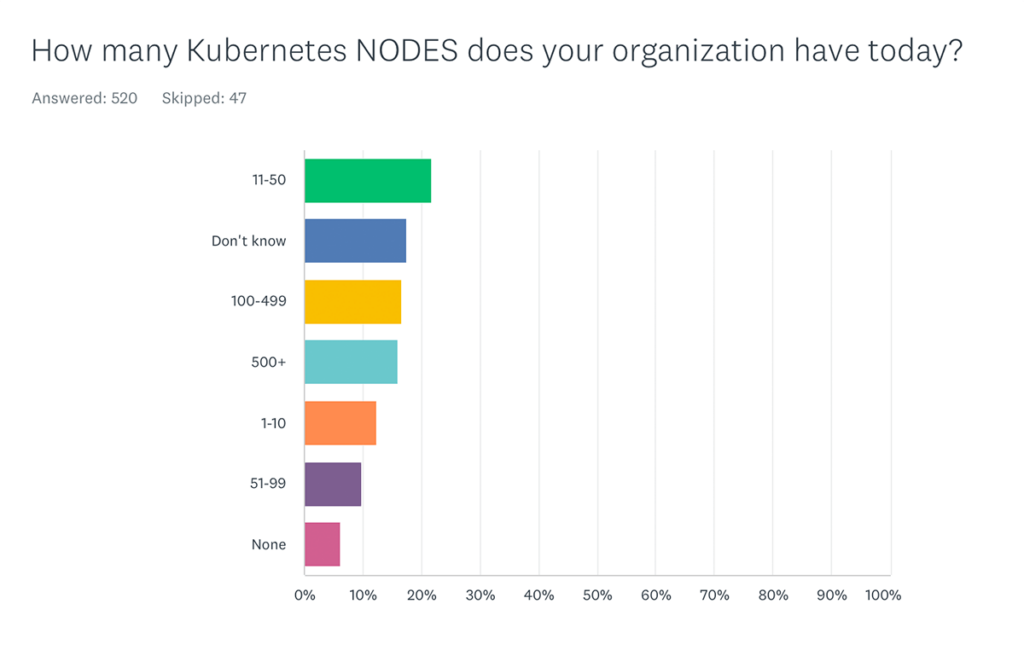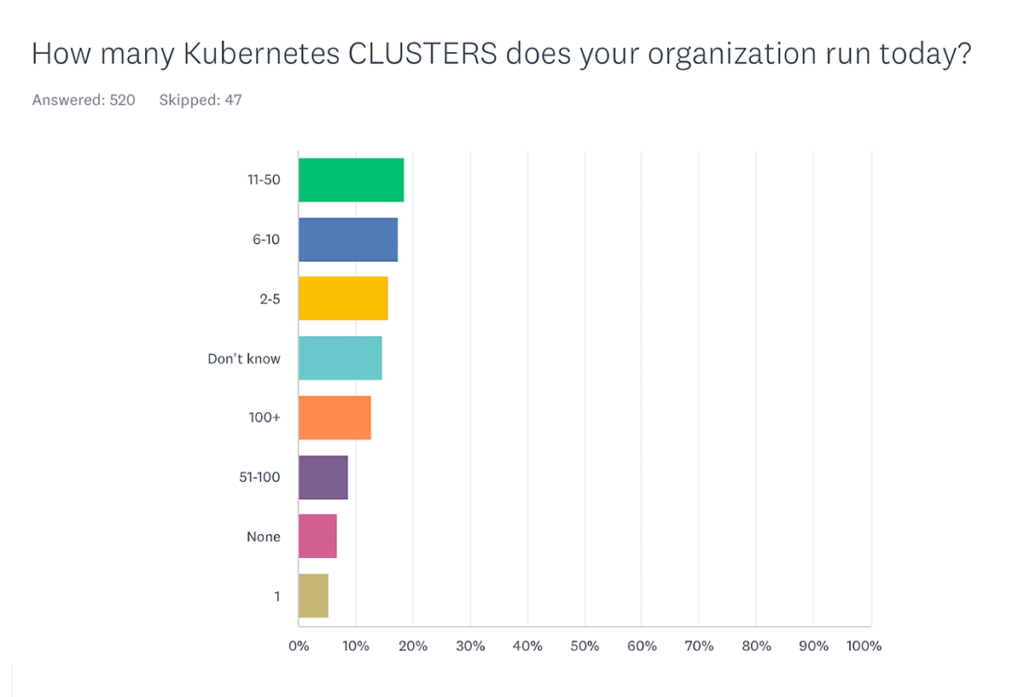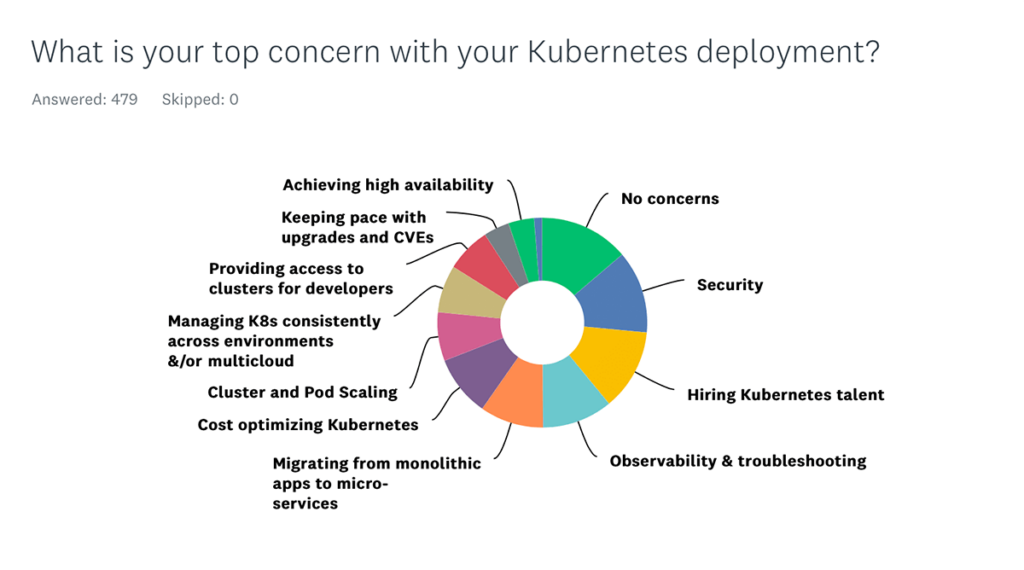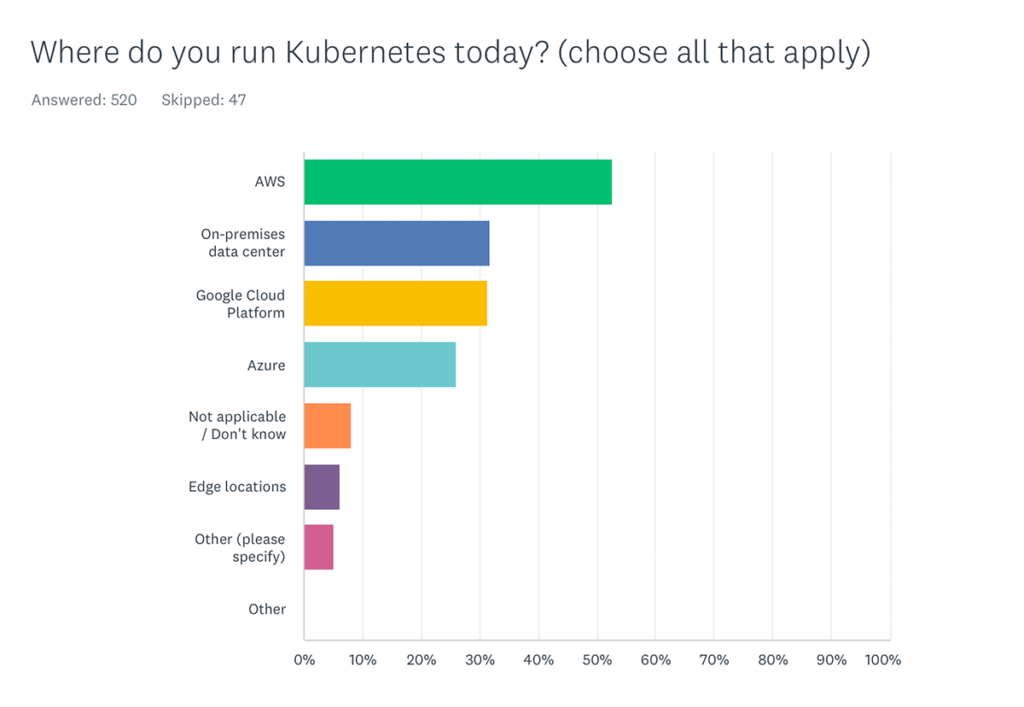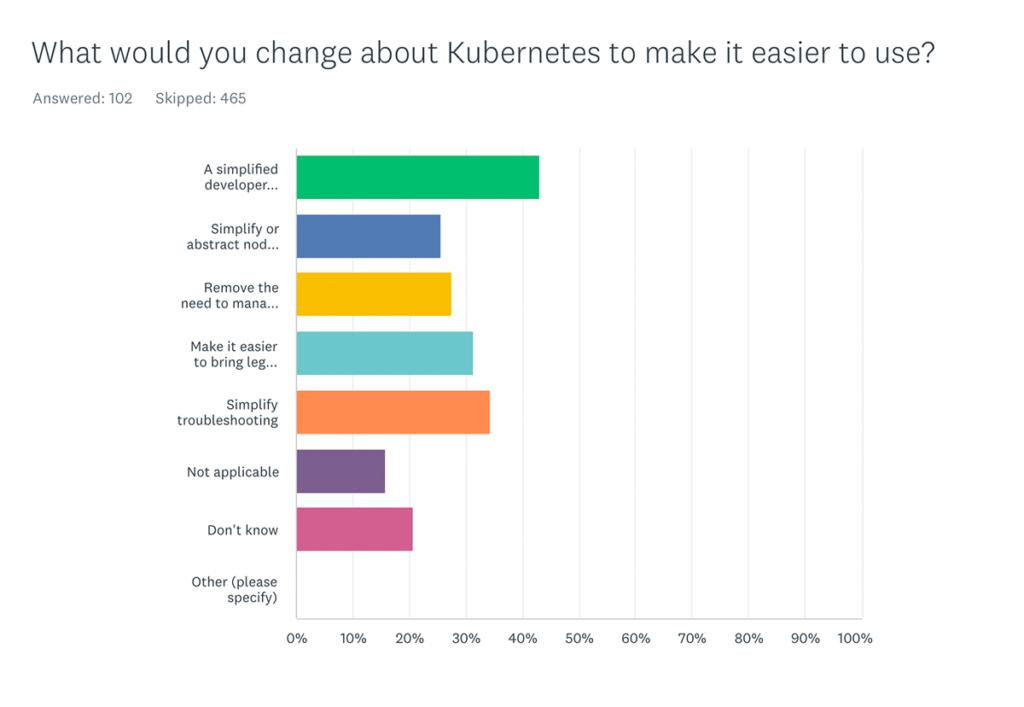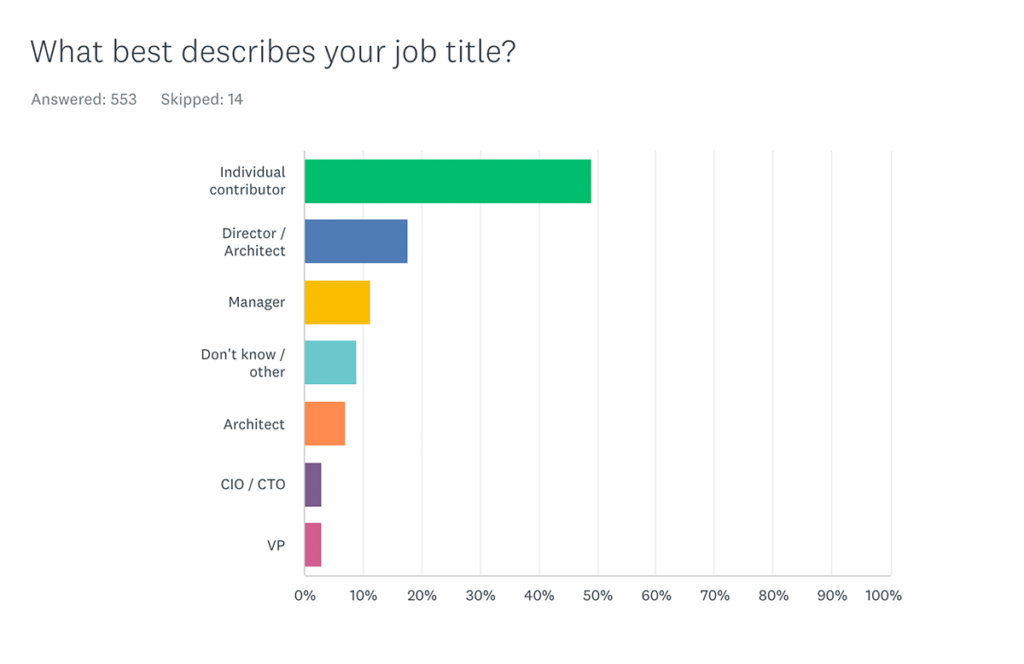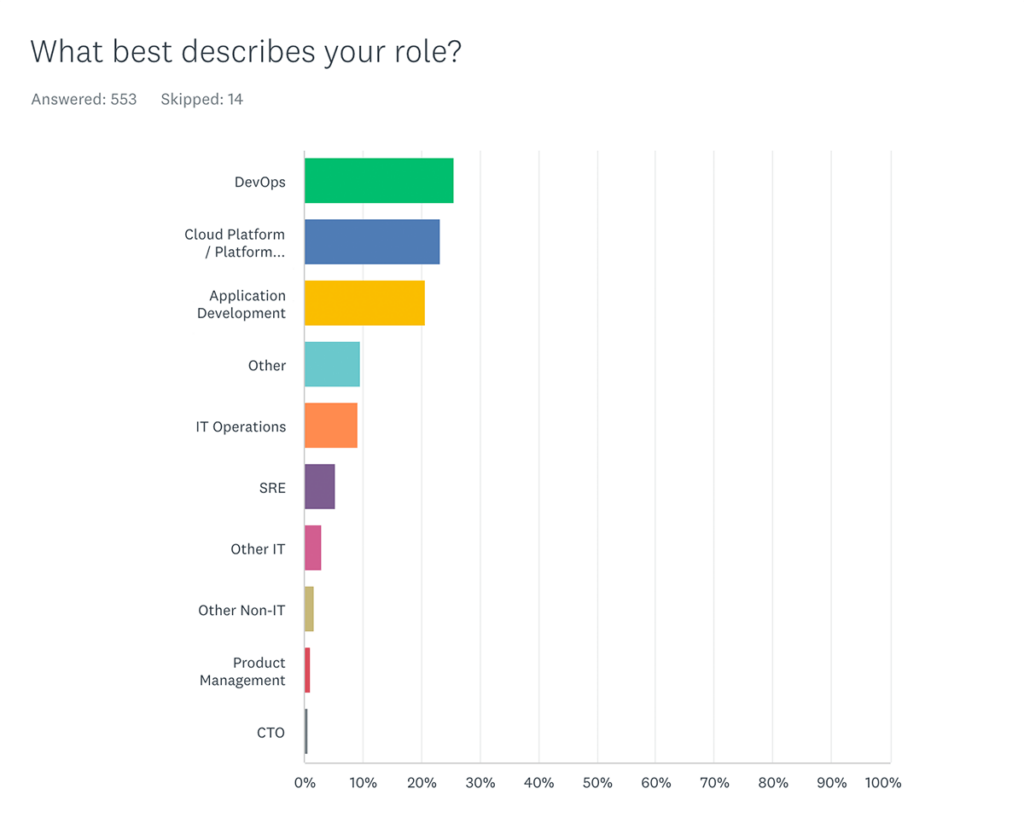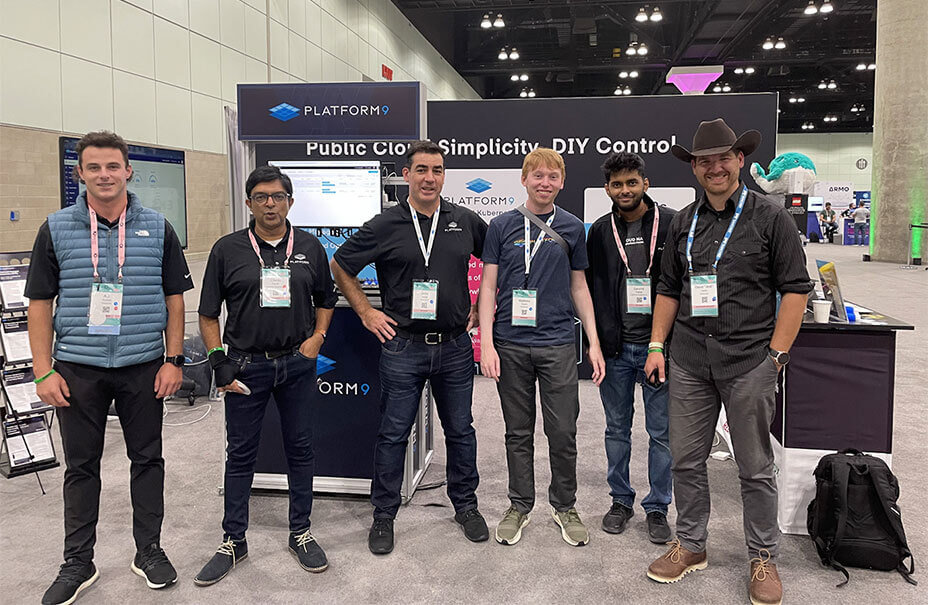
At the KubeCon show in LA, we conducted a survey of 567 attendees who gave us insight into their use of Kubernetes.
Here are the five most important takeaways from the survey results:
1. Autoscaling, speed, portability – top reasons to adopt Kubernetes
KubeCon attendees tend to be advanced users of Kubernetes so the survey results are skewed and represent only a sample of the broader enterprise population. As seen in the rest of the survey results, users are deploying at large scale across multiple cloud environments, on-premises, and edge locations. Survey respondents are adopting Kubernetes for its promise of portability, agility, and scalability.
2. Massive increase of Kubernetes nodes and clusters
It is astonishing to see the massive scale at which Kubernetes is being deployed today. 20% of the respondents are running 50 or more clusters while 35% are running more than 100 nodes.
3. Top concerns – #1 security #2 hiring #3 observability
While it may be relatively easy to deploy Kubernetes initially for experimentation and Proof of Concepts, operating it at scale with observability, quick troubleshooting while maintaining security is enormously challenging. These things together contribute to operational complexity which the respondents identified as a top barrier to run more workloads on Kubernetes.
All of this requires in-depth Kubernetes expertise, operational experience with cloud-native observability, integration with enterprise security, and automated tooling to ensure compliance and governance.
Kubernetes talent continues to be hard to hire and harder still to retain due to the market demand for such skills.
4. 70% Deploying on Public Cloud
Public cloud Kubernetes production deployments dominate with nearly 70% of respondents using AWS, GCP, and Azure. AWS continues to be the top public cloud of choice.
24% of respondents indicated that they run Kubernetes on multiple public clouds. This trend of multi-cloud has been increasing for the past several years. With the number of different, mixed environments (private/public cloud as well as at the edge) projected to continue to grow – avoiding lock-in, ensuring portability, interoperability and consistent management of K8s across all types of infrastructure — would all become even more critical for enterprises in the years ahead.
5. Users would like simplified developer experience and simpler troubleshooting
Developers need to learn a number of k8s constructs before they can deploy the simplest of applications. Each infrastructure construct such as VMs, cloud instances, Terraform, GitOps introduces more complexity and challenges with developing, deploying, and troubleshooting applications.
Demographics: Survey audience predominantly practitioners with operational focus
Summary
Kubernetes is quickly becoming an “invisible essential”of daily life for DevOps teams at major enterprises, who are leading this new revolution.
Kubernetes is enabling agility, portability, and scalability for enterprises to rapidly roll out new cloud-native applications, paving the way for digital transformation journey – for startups and large enterprises alike.
However, there are still challenges to overcome. Kubernetes is still difficult to run and operate at scale, particularly for multicloud/hybrid environments- spanning on-premises data centers and public cloud infrastructure. Observability and security are key challenges to address as teams get into large-scale production environments. Hiring talent and retaining them to run Kubernetes operations continues to be very difficult. Developers are seeking a more PaaS-like experience for greater productivity instead of getting mired in the complexity of Kubernetes constructs.
Platform9 Managed Kubernetes (PMK) is a SaaS managed offering, providing the simplest tool to manage all your complex Kubernetes needs, anywhere – on-premises, in public clouds or at the edge.
